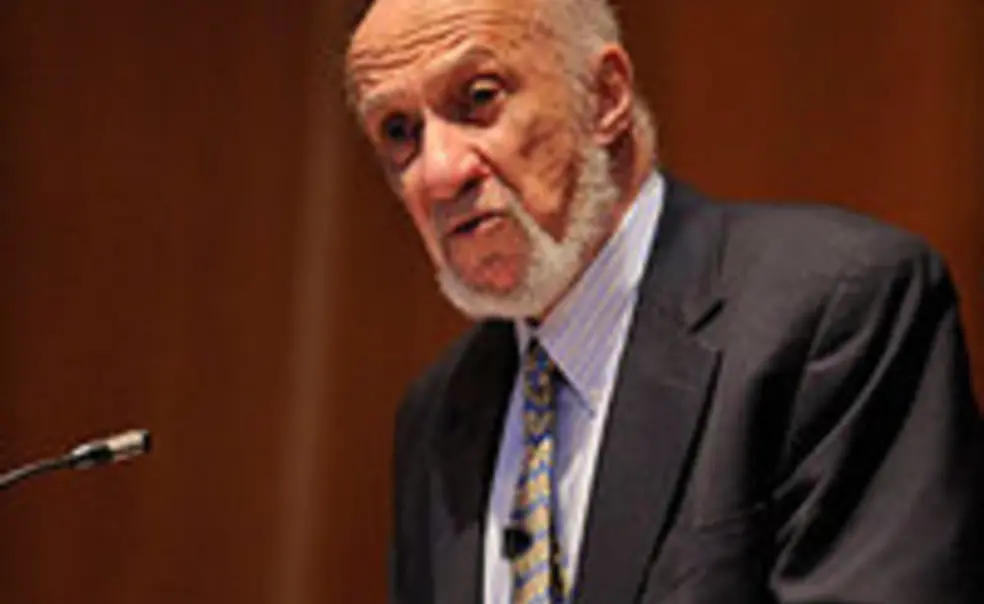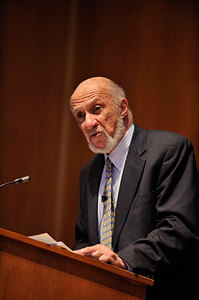Falk Discusses Palestinian Tactics in Campus Lecture
[
Palestinians are increasingly using nonviolent tactics to oppose Israel, emeritus professor Richard Falk said in a campus lecture Feb. 18. Falk, who serves as the U.N. special rapporteur on human rights in the Palestinian territories, presented the annual Edward W. Said Memorial Lecture. Despite the new use of tactics such as boycotts, in many fundamental ways, nothing has changed in the Palestinian situation, Falk said. âOppressive occupation continues. The consolidation of Israeli control of Jerusalem has continued. Another decade of settlement expansion has given rise to growing realization that the occupation has become a form of annexation,â he said. Falk has provoked controversy for his critical views of Israel as well as comments suggesting that the Boston marathon bombing resulted from aggressive U.S. global policies. Three senior faculty members in the English department published a letter in The Daily Princetonian dissenting from their departmentâs co-sponsorship of the lecture. During his lecture, Falk was critical of Israeli and Palestinian leaders, as well as the U.N. But he highlighted the Palestiniansâ growing emphasis on nonviolent tactics that put pressure on Israel, the U.N., and other governments in order to cast doubt on Israelâs legitimacy as an occupying power.âThereâs some reason to believe that soft-power militancy of a sufficient magnitude can lead rational leaders to base their future on a peaceful politics of accommodation rather than rely on hard power dominance,â Falk said, comparing the Palestinian national movement to that of the anti-apartheid campaign in South Africa. He pointed to the growing Boycott, Divestment, and Sanctions (BDS) movement against Israel as evidence that the Palestiniansâ soft-power tactics are gaining traction.
Some members of the audience were critical of Falkâs presentation. One accused Falk of being a conspiracy theorist, and another reprimanded him for referring to philosophers who supported Nazism or Stalinism. Noting the audienceâs reaction, a Near Eastern studies graduate student asked Falk what lies ahead for someone who wants to enter academia but also holds views that are critical of Israel. Falk responded by discussing how his opponents have accused him of being anti-Semitic.
âTo use that label as a way of intimidating and inhibiting criticism of Israel is a very regressive political development in universities and in societies generally, and I hope those of us who are more secure will not give in to those kinds of intimidations,â Falk said.













No responses yet